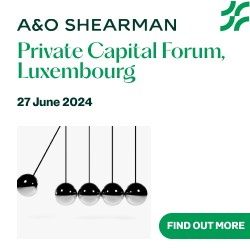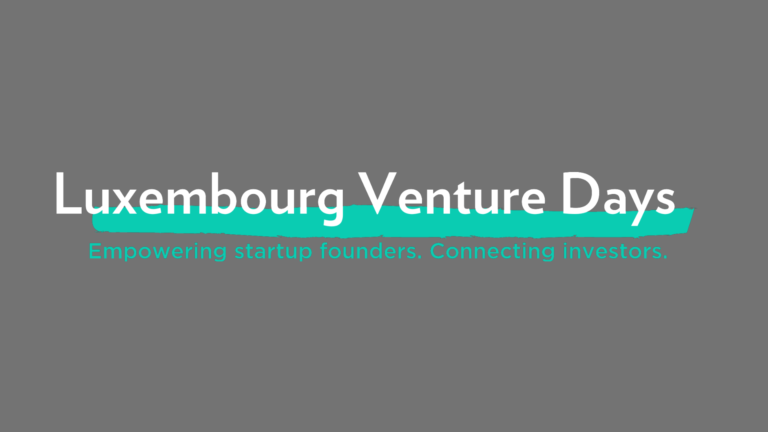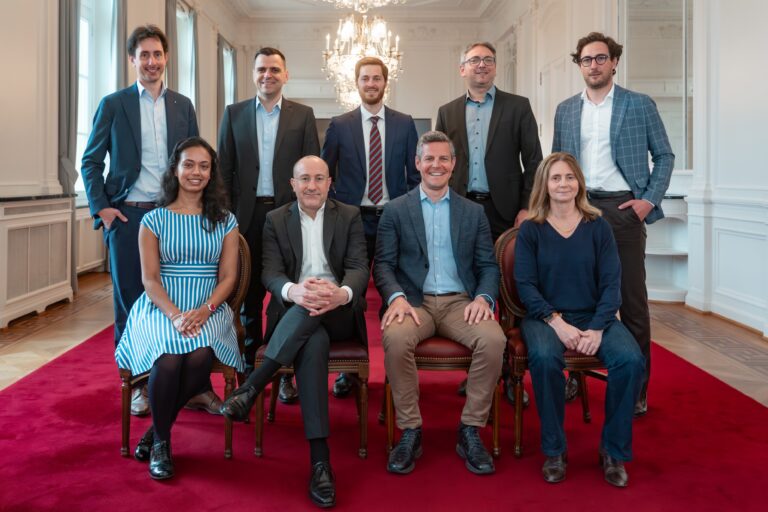Interview of Pierre Festal, Partner, Promus Ventures by Manon Aubry, Manager – Client Relationships, RSM Luxembourg as feature in as featured in Insight Out Magazine #22
Could you please introduce Promus Ventures?
Promus Ventures is an early-stage VC, founded in the US ten years ago and focusing on deep-tech startups, using innovative solutions to solve complex problems. We have been managing a range of funds in the US, and more recently, one in Europe. We have invested in over 95 companies spread all over the world, mostly at an early stage and opportunistically in later stage ones.
Promus Ventures has a strong knowledge of the US market and last year, you closed an European VC fund in Luxembourg : Orbital Ventures. Why Luxembourg?
Luxembourg is known as the fund management capital of Europe, so it made a lot of sense to be based here in from that standpoint. But more importantly, the fund that we are running in Europe, focusing on the broad space sector, was initiated by various stakeholders and institutions from Luxembourg including the government and the Luxembourg Space Agency, who wanted to support and continue to develop the space ecosystem out of Luxembourg.
What was your experience building a team in Luxembourg?
I was the first hire in Luxembourg. One of my first tasks was to set up our presence on the ground including hiring the team. We built a strong team of investment professionals, as well as marketing and operations specialists. It took a while to hire the right team. A few of our people came from outside the country and decided to come and live in Luxembourg. All in all, we now have an outstanding team, a good culture and a great foundation to further grow our business in the Grand Duchy and in Europe.
What is the strategy behind Orbital Ventures?
Our mandate is to invest in the broad, space economy. We can invest in any early-stage company that leverages a space technology into its offering and value proposition. When you look at the European ecosystem, it is still relatively early when it comes to space and also, by extension, deep-tech, but more opportunities are emerging. Luxembourg, for instance, has been very active in the space economy in the past four decades, pioneering the satellite industry with the launch of SES in 1985, and more recently setting up a regulatory framework around the space economy and space resources. We see a willingness to continue attracting space companies and talent and many initiatives and mechanisms being implement to that effect.
Orbital Ventures is part of the natural evolution of what Luxembourg has been doing over the years and a way to scale and leverage all the other initiatives.
In one word, what makes Orbital Ventures different?
Domain expertise would come to mind.
Promus Ventures has an impressive track record on space tech. How do you select your investments?
Space tech is no different from any other sector in technology when it comes to entrepreneurship and founding companies. At the end of the day, it’s all about the team. We are in the business of backing people, the main thing we assess when looking at an early-stage company is the founding team, their vision and their ability to execute on that vision.
What are the next challenges and opportunities for new space/deep-tech startups globally, in Europe, in Luxembourg?
Europe has always been a bit late to the party. It took Europeans a while to wake-up to the innovation that was happening in the space sector, which historically has been very government-focused, given how capital-intensive the industry is. Historically there were only governments and associated institutions, such as the space agencies taking the long strategic view and willing to invest significant money, time, and resources into building the space economy.
The evolution and commoditization of several core technologies in the last 20 years (e.g., launch, miniaturization of components that enable building low-cost satellites, advances in supply chain and outsourced manufacturing, etc.,) have enabled small, agile, and fast-moving entrepreneurial venture to emerge. It first started in the US and SpaceX is really the pioneer there, creating a model where a small private company could work with NASA and get contracts from the US government to launch payloads into orbit and help further advance the space economy.
Europe has been watching these developments with a lot of skepticism for a number of years, thinking this was not really possible. SpaceX has proven that not only it was possible, but you could create significant value for shareholders and everyone involved in the space ecosystem. In the end, Europe had no choice but to embrace the privatization of the space economy and it has many strengths to leverage: It has space agencies, a space flight heritage – Europe has been sending, astronauts and satellites into orbit for a long time – large companies with knowledge and expertise, talented human resources, the research institutions to bring R&D to fruition and so on.
Where Europe is still weaker than some of the other countries, like the US or China to some extent is on capital formation. And that’s what we’re trying to help solve with Orbital Ventures – closing the financing gap.
In a nutshell, what is your strategy to maintain your leading position in the space tech/deep tech sector?
We are working hard to stay active in the market, backing new companies. We have dry powder in the fund to continue making new investments and keep supporting our portfolio companies. By the time the fund is deployed, we’ll have about 20 companies in the Orbital Ventures portfolio. And then we have another two dozen companies in the Promus Ventures portfolio that are active in the broad space sector, which takes us to over 40 companies in total.
There are few funds across the globe to have this kind of coverage when it comes to the space sector in North America, Europe, and beyond. We continue to invest and focus on finding those great entrepreneurs who try to solve significant problems within the space industry. We are also very involved with the general space ecosystem, collaborating with stakeholders, mentoring companies (and even companies we’re not investing or planning to invest in), sharing our views on the market with large corporates, or participating in forums and conferences.
And by virtue of doing this, we will hopefully continue to back emerging leaders and winners in the sector. At the end of the day, that’s what matters most and what will keep us in the lead.
What’s next?
Right now we are focused on deploying the fund and helping our portfolio companies. We want to continue raising new funds in the future to focus on what we we’ve been doing well over the years, which is investing space and other sectors that fall under the larger deep tech category, like automation and robotics, applied artificial intelligence and so on.
We have the ambition to continue building a platform out of Luxemburg and the US. We think we have a great foundation, a great team, a good track record and we are getting increasingly known in the market, not only for space, but also for other deep-tech sectors. So, we want to leverage what we’ve built to date into growing our business.
About:
Promus Ventures
Promus Ventures invests in early-stage deep tech startups solving complex problems to advance everyday lives across the world. Since 2012, the firm has invested in 95+ portfolio investments across the US, EU, UK, and New Zealand, and has offices in Chicago, San Francisco and Luxembourg. Promus Ventures’ other announced space and geospatial investments include Rocket Lab, ICEYE, Spire, Mapbox, Isotropic Systems, Mangata Networks, The Exploration Company and others. Some of Promus Ventures’ other leading portfolio investments include Whoop, AngelList, Bellabeat, Swift Navigation, Halter, Cobalt Robotics, Diligent Robotics and others.
Pierre Festal
Partner, Promus Ventures
Pierre leads the Promus Ventures European office in Luxembourg. He has invested for over 15 years across early, expansion and late-stage technology companies at London-based ACE & Company, Nomura International, Atlas Ventures, and Jeffries International.
Pierre has been focusing on deep-tech and fintech startups in Europe for the past 10 years, his portfolio including companies such as Zoopla Property (IPO), Chargepoint, N26, Redaptive, Kitchen United, Docker, Eos Energy, MOO, Novinium, Payfazz, Spectra Sensors, and Daily Motion.




